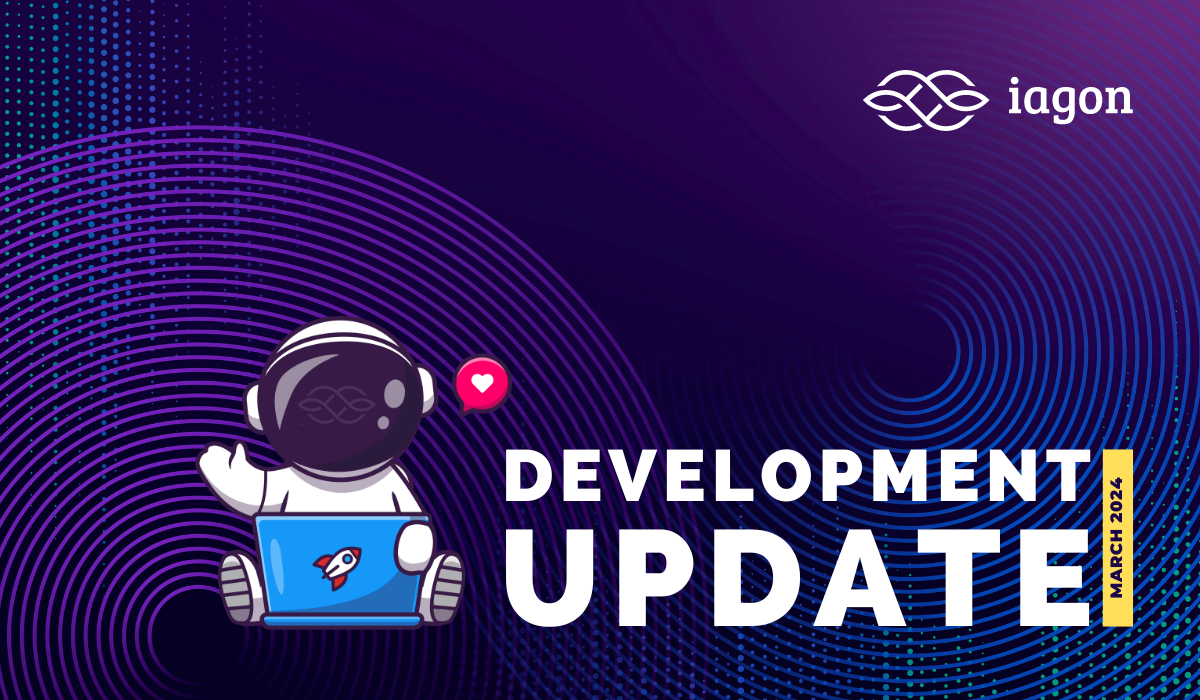Cookies are delicious but also personal; never share them unknowingly. At Iagon, we believe that no one should profit from your personal information, and your personal data should always remain… well, personal.
That’s exactly why we decided not to use cookies or trackers on our main webpage and implemented Zero Cookie Tracking Policy.
So rest assured that we’re not after your cookies or your family recipe. Please bear in mind, however, that this only applies to the main webpage and not the app webpage. The latter is governed by other provisions and a different policy.
What is Zero Cookie Tracking Policy about?
Nowadays, most websites track and keep records of different types of information, including your online behavior, location, etc. All this is usually gathered through cookies and trackers. But why does a website need these bits of information anyway? It may be argued that cookies and trackers serve a dual purpose. First, to streamline your interaction with a given website (you don't have to log in on every visit, for instance) and to provide its owners with data they can use to improve the design or the UI.
Secondly, they’re used for marketing and advertising purposes. Several pages may be selling your personal information to third-party companies or profit from showing you ads of their products and services.
But what does the Zero Cookie Tracking Policy imply?
It means that whenever you interact with our website, we will not keep any records regarding your activity or personal data. Sure, it will make the job of our product and marketing team more complicated as we will not have access to useful information, but we genuinely believe that your privacy is more important.
It is also essential to know that our Zero Cookie Tracking Policy implies that we do not place cookies or trackers on your device, nor do we have access to your information. However, you must understand that some devices or browsers are set to automatically place cookies whenever you interact with a website. The browser usually does this to make the interaction smoother. Even if that’s the case, we still do not have access to your information. Nonetheless, you might want to check your browser and device settings anyway to ensure that no one is feasting on your cookies. As mentioned earlier though, our Zero Cookie Tracking Policy only applies to the main webpage and not the app webpage. The app webpage is subject to different provisions and a different policy.
What are cookies anyway?
Since the introduction of cookies and the implementation of this technology in different web pages, legal scholars have been examining all the tension surrounding privacy frameworks.
The E-privacy directive, the 2016 enforcement of the GDPR in 2016, and the upcoming E-privacy regulation, which will eventually replace the E-privacy directive, are some examples of regulations that need to be considered when implementing cookies in a webpage. Moreover, as users, we must consider several legal aspects when surfing the web.
This article serves as a general introduction to legal and technical aspects related to cookies. If you want to learn more about the subject, we encourage you to check the sources and research further on the topic.
Regardless of serving as a general term, cookies are a vastly complex subject. They were first created in 1994 as a mechanism to remember or maintain a memory of the interaction between clients and servers. They usually are composed of text-character strings encoding which reveals information about the webpage user. In general, cookies are sent to the user's hard drive or RAM through the browser whenever the said user visits a website that utilizes cookies. The web server then retrieves information from those cookies to remember and recognize the user whenever they return to the website. In a nutshell, cookies are used to acquire data from the user and subsequently improve the server-browser communication by removing the necessity to ask for the same information time and time again. Cookies and trackers can be used to examine many user characteristics, such as online behavior, preference, time spent on a webpage, location, etc.
When it comes to the classification and taxonomy of cookies, various criteria can be applied. Most sources mention (among others) first-party, third-party, and flash cookies. To understand the difference between them, it is necessary to define each of them.
- First-party cookies are cookies placed directly from the website visited.
- Third-party Cookies are those cookies placed not by the website owner but by a third party company, usually for advertising or/and analytic purposes.
- Flash cookies are cookies first developed by Macromedia Flash and are installed via Flash.
Apart from these examples, there are many other types of cookies, classified according to multiple criteria, such as duration, purpose, provenance etc.
Cookies & Legal Compliance
Regardless of the broad spectrum of the subject in question, the GDPR only mentions cookies explicitly in recital 30: "natural persons may be associated with online identifiers provided by their devices, applications, tools, and protocols, such as internet protocol addresses, cookie identifiers or other identifiers such as radio frequency identification tags."
However, cookies can store data such as the IP address, which has been recognized as information that could be used to identify a person and, therefore, personal data.
Websites implementing cookies that fall into the scope of the GDPR need to fulfill the requirements of such regulations, including having a lawful legal ground for processing the data, like consent or the fulfillment of a contract, following the data minimization principle, informing the data subject of their rights, etc.
The E-privacy directive has been known as the "cookie framework" due to the notable effect on the pop-ups for consent on websites. Therefore, combined with the GDPR, both frameworks provide a set of rules for cookies that could be simplified as follows.
- Ask for and successfully receive user’s consent before using any cookies except the strictly necessary ones.
- Inform accurately and in detail about all the information collected and the purpose of each cookie before receiving the user's consent.
- Document and store the consent forms received from the users.
- Allow the users to access the service even if they do not agree to the use of certain cookies.
- Make sure that it is as easy for the users to withdraw their consent, as it was for them to give it.
Several requirements are left off this list, and due to the breadth and complexity of the subject matter, we could not include all the information in this article. We encourage our readers who want to learn more to research this topic further.
The cookie framework is constantly evolving, thus posing a never-ending challenge to all website operators, who have to continuously update their policies in order to ensure compliance with the privacy frameworks. Even so, at Iagon, we feel our Zero Cookie Tracking Policy covers most aspects and offers the best possible privacy framework.
For more information and to see what else is going on with iagon, please follow us at the social media links, or head over to the IAGON Website!
About Iagon
Iagon aims to revolutionize the cloud by developing a storage platform and a processing platform where anyone can profit from shared resources. The whole value proposition circles back to the potential of blockchain technology by letting device owners join the storage and processing power grids to create a completely decentralized data cloud and supercomputer.
Website | Twitter | Telegram | Blog | CoinGecko | CoinMarketCap



